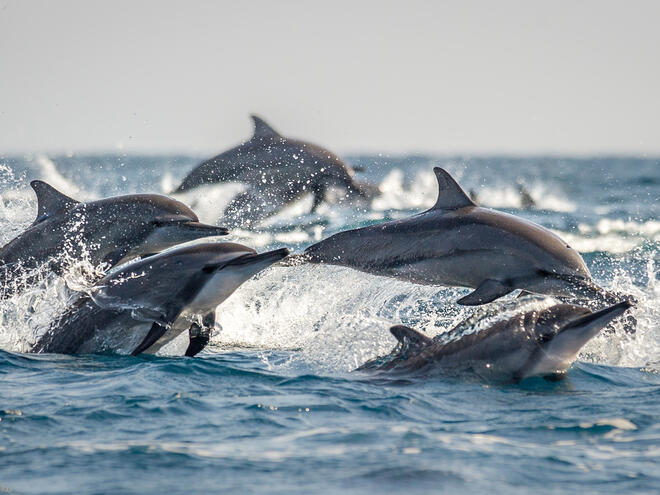
I love the ocean because it offers an enormous amount of untapped potential for peace and prosperity to communities around the world. In my new role as senior vice president of Oceans at WWF, I am inspired by the commitment of my team to protect, restore, and conserve our ocean—from the frigid Arctic to humid tropics. I am also reminded of the urgent need to change how we are using this precious reserve that feeds us, shelters us, protects us, inspires us, and connects us. We simply cannot afford to lose it. Working with people and communities globally is key to creating that change. By connecting over our mutual love and respect for what the ocean holds and provides us, we can reach our goals and keep Earth thriving.
I love the ocean. Because of that love, I know that we need to find common ground across the world and work together to protect it and do everything we can not to lose it.
Here are a few more snapshots of why all of us here at WWF love the ocean:
Remarkable Arctic migrations
Every summer, the Arctic ocean marks one end of an incredible migration. Through the Bering Strait, 40-foot-long gray whales swim north to feast on plankton. Meanwhile, hundreds of thousands of caribou walk for hundreds of miles to the coastal plain of the Arctic National Wildlife Refuge. Both species are teaching their offspring where to find food, shelter, and connection. Honoring this ancient rhythm in the Arctic means protecting these amazing animals from the devastation of oil spills and harmful noise pollution while giving people and nature room for resilience in the face of a growing climate crisis. Show your love for the Arctic.
Send a message to your representative asking them to commit to protecting this magnificent place.
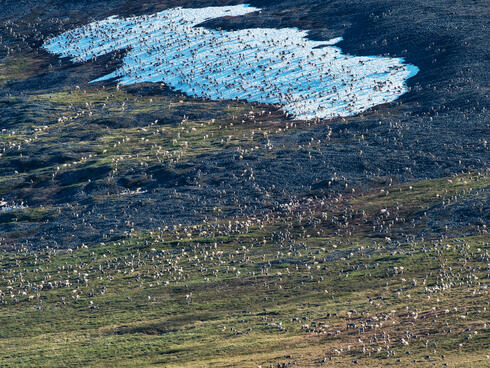
Porcupine caribou herd in the Arctic National Wildlife Refuge
© Peter Mather
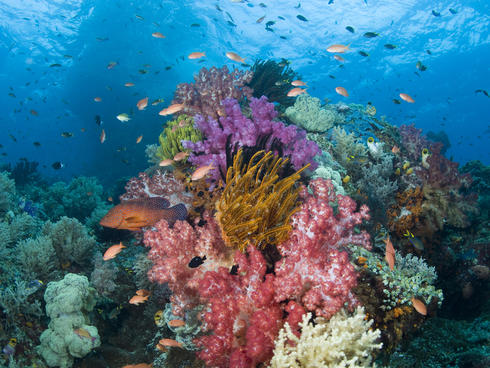
A flourishing coral reef
© MASTERFILE ROYALTY FREE
Invaluable corals and mangroves
Thousands of species of reef fish dart among brightly colored soft and hard corals around tropical and subtropical coastal regions worldwide—creating beautiful seascapes beloved by visiting and local families for tourism and income. Along the shorelines of the same coasts, mangroves grow in salty, waterlogged soil storing tons of carbon and harboring young sharks before they swim out to the big reefs. These coastal ecosystems are an iconic but threatened seascape. The climate crisis is raising temperatures and heightening extreme weather events. By protecting coastal mangrove forests, we support local communities, build resilience against the climate crisis, and preserve our coral reefs.
Abundant fisheries
Fish bring balance to ecosystems and feed billions. Sustainable fishing is an expression of love for the people and livelihoods dependent on fish for survival. Along ocean coastlines and across the high seas, more than 200 million people depend on our ocean’s fish for income and to feed their families. To keep their communities thriving, fishers are highly attuned to the delicate balance of the ocean’s natural systems. Pull out too many fish and the balance is thrown off—fish populations struggle to recover and local communities pay the price. That’s why WWF is committed to working alongside fishers to nurture healthy populations of ocean life—by and helping consumers make better choices when they purchase seafood. Loving what the ocean provides means protecting what we have.
Iconic wildlife
Whales, dolphins, sea turtles, and sharks all jump to mind when we think of the ocean’s wildlife. Their majesty and grace as they move through the water is incredible to behold and they are beloved worldwide. However, they increasingly face a major human-made risk—plastic pollution. Plastic waste is added to our ocean in dump truck size volumes every day from land and from sea. Discarded fishing gear—or ghost gear—is one of the biggest offenders. If we truly cherish the ocean’s iconic wildlife, we have to address our plastic problem.
Join WWF in our fight against plastic pollution by sending a message to your head of state asking them to build a global agreement to stop plastics from leaking into our oceans.
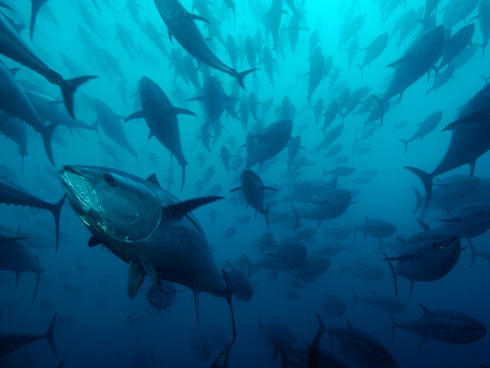
A school of northern bluefin tuna
© © Brian J. Skerry / National Geographic Stock / WWF
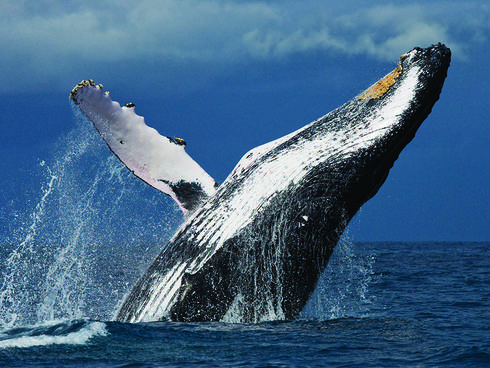
Enviroshop is maintained by dedicated NetSys Interactive Inc. owners & employees who generously contribute their time to maintenance & editing, web design, custom programming, & website hosting for Enviroshop.
